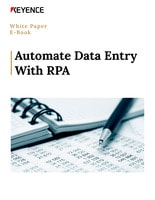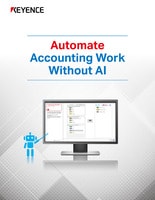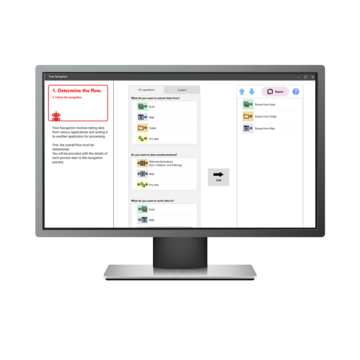RPA (Robotic Process Automation)
Finance & Accounting Department Automation with RPA

The finance and accounting department is integral to any organization’s operations, responsible for managing critical tasks such as financial reporting, invoicing, reconciliation, and compliance. However, many of these tasks are manual, time-consuming, and prone to errors. This is where Robotic Process Automation (RPA) can make a significant impact. By automating routine processes, RPA allows finance and accounting teams to focus on higher-value activities, enhance accuracy, reduce costs, and improve overall efficiency.
RPA technology automates repetitive tasks, such as data entry, invoice processing, and reconciliation, ensuring that financial data is accurate, up-to-date, and processed in real time. This not only reduces errors and delays but also enables faster decision-making and enhances compliance.
Discover more about this product.
Click here to book your demo.

Common Challenges & Key Use Cases in Finance & Accounting
Manual Data Entry
Data entry is one of the most repetitive tasks in finance and accounting. Manual data entry can lead to errors, inconsistencies, and delays. RPA can automate the entry of financial data from invoices, purchase orders, and bank statements, ensuring that all information is accurate and entered on time.
Invoice Processing and Payments
Invoice processing is often labor-intensive, requiring multiple steps, including data extraction, verification, and approval. RPA can streamline the entire invoice lifecycle, from automatically capturing invoice details to matching them with purchase orders, routing for approval, and initiating payment processing.
Reconciliation
Reconciliation between accounts, bank statements, and financial records can be complex and time-consuming. RPA can automate the reconciliation process by comparing data across multiple systems and flagging discrepancies for review. This reduces the time required to complete reconciliation and ensures that financial records are accurate.
Financial Reporting
Generating financial reports, tracking key metrics, and ensuring compliance with regulations often require manual consolidation of data from multiple sources. RPA can automate data collection, report generation, and distribution, allowing finance teams to generate reports with up-to-date information and make data-driven decisions faster.
Compliance and Regulatory Reporting
Staying compliant with financial regulations and meeting reporting deadlines can be challenging. RPA can ensure that all financial processes adhere to regulatory requirements by automatically applying the necessary rules and generating compliant reports on time.
Benefits of RPA for Finance & Accounting Departments
- Increased Accuracy: RPA eliminates human errors in data entry, reconciliation, and reporting, ensuring that financial data is accurate and consistent.
- Faster Processes: Automating tasks such as invoice processing, reconciliation, and financial reporting can significantly reduce processing time, speeding up workflows and improving decision-making.
- Cost Savings: By reducing the need for manual intervention in routine tasks, RPA can cut operational costs and improve resource allocation within the finance department.
- Improved Compliance: RPA ensures that financial processes comply with regulatory standards by automating compliance checks and generating reports that meet regulatory requirements.
- Scalability: RPA can handle increased volumes of transactions and financial data without requiring additional resources, making it easy to scale financial operations.
Integrating RPA into Finance & Accounting Operations
RPA can integrate with existing accounting software and ERP systems to automate end-to-end financial workflows. Workflows using commercially available platforms as well as homegrown solutions can be automated using robotic process automation. By integrating RPA with these systems, businesses can streamline financial processes, reduce manual intervention, and ensure seamless operations across departments.
Who Benefits the Most?
- CFOs and Finance Leaders: Automate time-consuming processes like invoice processing, reconciliation, and reporting to reduce costs and improve decision-making.
- Accounts Payable and Receivable Teams: Speed up invoicing, payment processing, and account reconciliations, improving cash flow and reducing administrative burdens.
- Internal Auditors: Use RPA to track financial transactions, automate audits, and ensure compliance with internal controls and external regulations.
- Compliance Officers: Ensure that financial processes meet regulatory standards by automating compliance checks and reporting.
By leveraging RPA, finance and accounting departments can dramatically reduce manual workloads, improve accuracy, and enhance efficiency. The automation of routine tasks frees up valuable time for teams to focus on more strategic initiatives, ultimately supporting better financial decision-making and business growth.
FAQs
How Does RPA Help with Invoice Processing?
RPA can automatically extract invoice data, match it with purchase orders, validate the information, and route the invoice for approval. This speeds up processing time, reduces errors, and ensures timely payments.
Can RPA Assist with Financial Reporting?
Yes, RPA can automate data collection from various financial systems, generate reports, and distribute them to stakeholders, providing up-to-date insights into a company’s financial performance.
How Does RPA Help with Reconciliation Tasks?
RPA can automatically compare bank statements with internal records, flagging discrepancies and automating the reconciliation process. This ensures accurate financial records and reduces the time spent on manual reconciliation.
We’re here to provide you with more details.
Reach out today!





